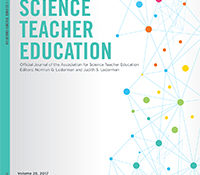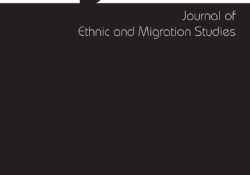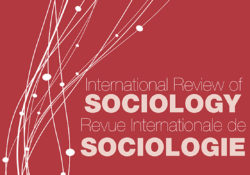tandfonline.com har udgivet en rapport under søgningen “Teacher Education Mathematics”: Relationship between group cohesion and social participation of pupils with learning and behavioural difficulties Link til kilde
Like this:
Like Loading...
tandfonline.com har udgivet en rapport under søgningen “Teacher Education Mathematics”: Social justice, education and peacebuilding: conflict transformation in Southern Thailand Link til kilde
Like this:
Like Loading...

tandfonline.com har udgivet en rapport under søgningen “Teacher Education Mathematics”: ABSTRACT ABSTRACT Ideas about social justice are influenced by the ontological and epistemological assumptions of the worldview in which they are located. Since the seventeenth century, the dominant worldview in the western hemisphere has been shaped by the separatist and deterministic principles of classical Newtonian science. During the twentieth century, with the advent of quantum physics, these principles have been contested from within science itself, indicating that the universe may instead be inter-relational, entangled and participatory. A historical investigation demonstrates how, despite findings from modern science, the Newtonian worldview has become deeply embedded in the western psyche, including in neoliberal politics, education, and educational research. As a counter-narrative, an alternative worldview is proposed, which is grounded in the ontological assumption… Continue Reading →
Like this:
Like Loading...
tandfonline.com har udgivet en rapport under søgningen “Teacher Education Mathematics”: ABSTRACT ABSTRACT How should we understand the academization of the social sciences around the turn of the twentieth century with regard to gender? In this article I argue in favour of a contextually broadened sociology of knowledge approach which highlights the importance of women’s extra-academic social research as a parallel and interconnected form of social knowledge to the new and male-dominated academic social sciences. Theoretically, the approach combines three perspectives: field theory, social movements research and historical studies of knowledge circulation. Empirically and methodologically, the study is prosopographically centred around nine female social researchers in Sweden 1900–1950 with an analytical focus on their aggregated career patterns, the gender-coded mechanisms of academic exclusion that were at play and three types of… Continue Reading →
Like this:
Like Loading...

tandfonline.com har udgivet en rapport under søgningen “Teacher Education Mathematics”: ABSTRACT ABSTRACT Science teachers should be able to notice student preconceptions in order to adapt instructions to their students’ needs and support the learning process. Noticing as a core practice of teaching should thus be implemented early in science teacher education. A crucial prerequisite for noticing is knowledge about students’ preconceptions, which is an important element of science teachers’ pedagogical content knowledge. To enhance pre-service teachers’ pedagogical content knowledge, flipped classroom approaches seem especially promising as they combine a theoretical introduction to important didactic concepts with a direct application of these concepts in profession-oriented learning tasks. Furthermore, flipped classrooms seem to satisfy the three basic personal needs of experience in competence, social relatedness, and autonomy according to the self-determination theory… Continue Reading →
Like this:
Like Loading...
eric.ed.gov har udgivet: In the spring of 1990, over 9,000 4th-, 8th- and 12th-grade students (only 6 percent of all students in Massachusetts) were assessed using open-ended mathematical, scientific, social studies, and reading concepts. Beginning with the Massachusetts Educational Assessment Program for 1992, open-ended questions will be administered to all students and will contribute to school and district scores. This series of reports describes the results of these assessments to communicate levels of student achievement throughout the state, familiarize teachers and administrators with the types of questions that will be included on the next assessment; and improve assessments taking place within classrooms by providing models that teachers can adapt to their own evaluations of students’ knowledge, understanding, and abilities. Fifteen handouts for grade 4, 17 handouts for grade 8, and… Continue Reading →
Like this:
Like Loading...
eric.ed.gov har udgivet: An attempt to meet the need for resource materials available for Adult Basic Education (ABE) personnel who work with Spanish-speaking adults is presented. The information presented was acquired by writing to commercial publishers throughout the country. Evaluations included were completed by identifying the usefulness of the curricular offerings for Spanish-speaking adults. Portions of the evaluations are designed for children and junior and senior high school students; some of these have proven useful to adults. Evaluative criteria used when the materials were assessed include: Title, Author, Publisher, Objectives, Criterion Measures, Instructional Components, Learner Prerequisite, Teacher Requirements, Reliability Effect, Cost and Time. (Author/CK) Link til kilde
Like this:
Like Loading...
eric.ed.gov har udgivet: This study compared the relative effects of three kindergarten schedules on children’s achievement in reading, writing, and mathematics, and on children’s prosocial classroom behaviors. Participating were 47 children attending all-day kindergarten, 56 attending alternate-day kindergarten, and 44 attending half-day kindergarten. Individual achievement tests were administered in a pretest-posttest procedure. Analysis of covariance showed that the all-day kindergarten group scored significantly higher in reading, with no significant differences in mathematics or writing. Multivariate analysis of covariance for the 14 subscales of classroom social behaviors on the Hahnemann Elementary Behavior Rating Scale showed significant differences between groups, with the half-day children exhibiting higher scores on classroom behaviors that facilitate learning and lower scores on negative behaviors. Possible reasons for these differences and implications of developmentally appropriate practices, teachers’ theoretical… Continue Reading →
Like this:
Like Loading...
eric.ed.gov har udgivet: This paper advocates using teaching methods in math and social studies instruction that take into consideration the students’ learning styles to increase achievement for at-risk students. Rural at-risk students need mathematics and social studies instruction that will prepare them for the 21st century. Traditional methods of instruction have not been successful for at-risk students. Teachers need to consider how environmental, emotional, sociological, physical, and psychological stimuli can be accommodated through instructional strategies. Learning styles are defined in terms of how individuals react to 21 elements of the instructional environment. Semantic mapping strategies can be used to provide structure for students who need it. Students who lack persistence can be given short tasks with breaks between them. Sociological needs of students can be accommodated through grouping students in… Continue Reading →
Like this:
Like Loading...

tandfonline.com har udgivet en rapport under søgningen “Teacher Education Mathematics”: ABSTRACT ABSTRACT Ethnic differences in the endowment with social capital can exacerbate intergroup inequalities. Pursuing this argument, we first compare the educational compositions of friendship networks between Turkish minority and native majority adolescents in Germany. Second, we pick up notions from Oppositional Culture Theory (OCT) to examine how ethnic differences in the composition of friendship networks come about. In a sample of 2,419 students in 74 secondary schools, we focus on the effort, achievement, and anti-school behaviour of peers and the role these play in adolescents’ friendship selection. Results from multilevel stochastic actor-oriented models reveal that Turkish minority adolescents prefer highly engaged and high-achieving peers as friends. Despite these preferences, Turkish minority adolescents’ social networks still provide lower levels of… Continue Reading →
Like this:
Like Loading...





